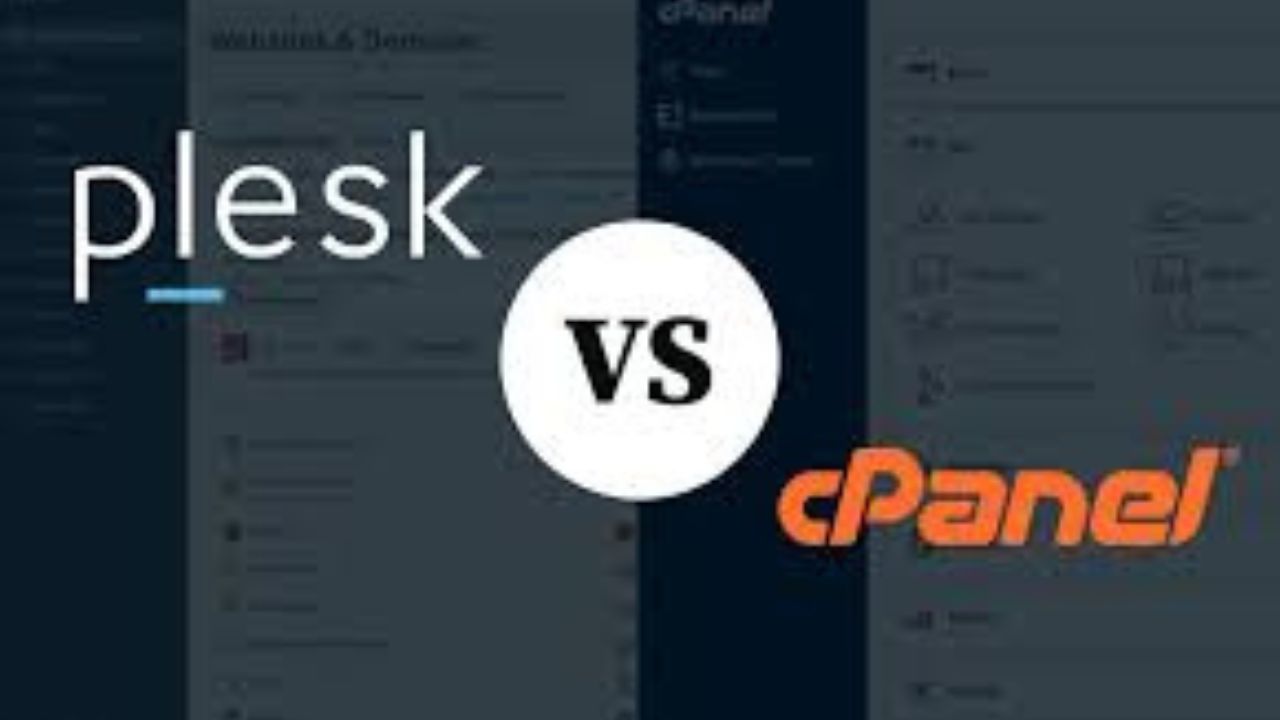
It takes technical skills to host a website. The technical aspects of hosting your website may overwhelm you if you’re a novice website owner. A reputable hosting provider will assist you with all facets of the first setup if you choose them. However, you are also responsible for ongoing maintenance, particularly the daily tracking. Although you can choose a managed plan, it is always preferable to be familiar with managing your Hosting setup.
A control panel can help in this situation. With these applications, you can manage the more intricate features of your Hosting and website. cPanel and Plesk are by far the most popular control panels despite the fact that there are many others available.
Its ease of use, intuitiveness, comprehensive control, and versatility are only a few factors contributing to its appeal. In this post, we’ll examine the advantages and disadvantages of these two apps, attempt to comprehend their distinctions, and—perhaps more importantly—determine which one is appropriate for your Cheap VPS Hosting setup.
What is cPanel?
A Linux-based control panel called cPanel makes managing hosting servers and websites much easier. With your cPanel interface, you may publish websites, create email accounts, organise your web files, manage your Hosting account and domain, and do much more. It is simple to use and explore because it is based on the Graphical User Interface (GUI).
Between the two control panels, Plesk and cPanel, cPanel is the more well-known and, in some ways, the default option for many users.
cPanel provides two significant benefits. One is that using it is simple. It has been created with beginners in mind; it has a great help section, everything is organised logically, and a sizable and helpful community is prepared to assist.
The second benefit is that cPanel was explicitly created for Linux computers. Everything is therefore created with that in mind. Linux-based servers are widely used. Therefore, cPanel and Linux work well together.
What is Plesk?
Plesk and cPanel are similar in many ways. It is also a web Hosting control panel that gives you access to a web-based interface for simply managing your Hosting account and server. It enables you to automate various tasks, like managing online files, setting up email accounts, creating user accounts, setting up domains, and more.
Plesk boasts a clean, simple style created to be intuitive. One sidebar function as a type of command center. Finally, Plesk comes with server and account management as standard, which greatly simplifies life. A fantastic assistance section has been added as the proverbial cherry on top.
While cPanel is solely compatible with Linux, Plesk is accessible on both Windows and Linux platforms. On the surface, this is the only distinction. That’s not the case, though. Although they are relatively subtle, there are quite a few distinctions.
Which control panel’s user interface is better?
cPanel: This is one of cPanel’s key advantages. It’s highly user-friendly. The main dashboard is where everything is organised. Everything is exactly where you’d expect it to be, making its GUI intuitive. cPanel has done this by combining all related features into one group. Additionally, cPanel enables you to customise your dashboard to your preferences if you are dissatisfied with the finer details.
Plesk: This was the area where Plesk struggled the most. Plesk used to be this sophisticated program that had all sense of intuitiveness. The UI issues with Plesk were the main source of complaints. But now that has changed, and Plesk looks very modern.
As they describe it, Plesk is now user-friendly for beginners. Most importantly, Plesk has retained all of the prior design’s functionality. The interface is straightforward, and everything is easy to find.
Which control panel offers better backup facilities?
cPanel: Compressed, uncompressed, and incremental backups are the three main backups kinds offered by cPanel. Compressed backups, as their name implies, take up less space but have the disadvantage of being slow. Backups that aren’t compressed take up more space but are much faster. When creating fresh backups, incremental backups made by creating a complete, uncompressed backup and then adding modifications to that copy. Daily, weekly, and monthly backups can all be planned.
Plesk: Plesk only supports complete and incremental backups. A complete backup makes a copy of everything. As previously indicated, incremental backup requires a full backup the first time it utilized. It just updates the initial backup in each successive backup. Similar to cPanel, backups can scheduled.
cPanel vs. Plesk — which one should you choose?
The truth is that this race is neither good nor terrible in any way. Both Plesk and cPanel have benefits and drawbacks. There is one crucial distinction to make: cPanel built for Linux, which powers the vast majority of web hosting platforms.
The real distinction here is that. Plesk is an obvious choice if you want Windows hosting. But while using Linux, it’s best to stick with cPanel because it created for the operating system. The stats also support this. Plesk is less well-known than cPanel. If you’re a novice, it’s simple to use and has a large community that is more than happy to assist.
Conclusion
Regardless of the control panel you select for your VPS Hosting, it’s crucial to make sure you get your VPS Hosting plan from a reputable web hosting provider with a track record of offering dependable, quick, and secure Hosting.
A cPanel control panel pre-installed on the SSD-based VPS Hosting plans. With our VPS Hosting options, we also give 24-hour assistance, which can be very helpful if you run across problems. Also included are extensible storage, rapid provisioning, full root access, virtualization based on the KVM hypervisor, account isolation, and devoted resource allocation. In the end, these fundamental technological aspects are essential to maintaining the steady growth of your website.
